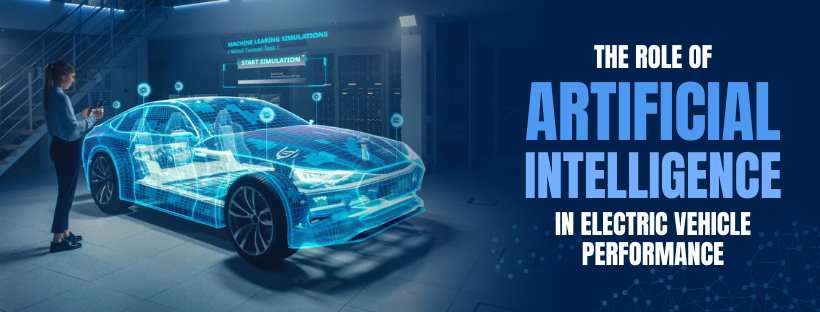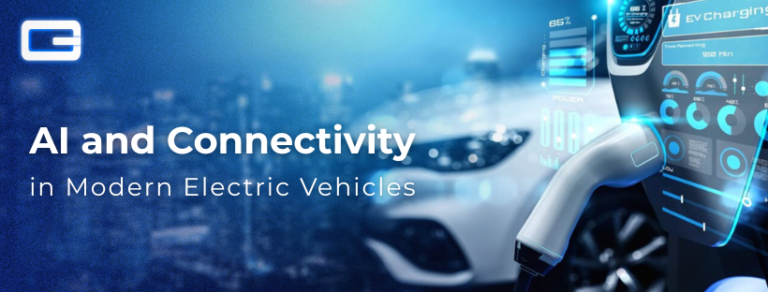As the world shifts toward cleaner and more efficient mobility, Electric Vehicles (EVs) have taken center stage. Yet, the true game-changer behind their rapid evolution isn’t just battery innovation—it’s Artificial Intelligence (AI). From optimizing energy consumption to predicting maintenance and improving safety, AI plays a vital role in shaping the performance, efficiency, and sustainability of EVs.
Smarter Energy Management through AI
One of the biggest challenges in EVs is battery efficiency. AI-powered algorithms now help monitor, analyze, and optimize how energy is stored and used. Machine learning models can predict a driver’s behavior, road conditions, and traffic flow to adjust power distribution accordingly.
For example, AI can determine when to switch between regenerative braking and traditional braking to save energy. It also fine-tunes temperature regulation within the battery, preventing overheating and extending its lifespan. The result? Longer driving ranges, shorter charging times, and reduced energy waste.
Predictive Maintenance: Redefining Reliability
Gone are the days when vehicle maintenance relied on guesswork or periodic service schedules. With AI-driven predictive analytics, EVs can now detect potential issues before they escalate into costly repairs.
Sensors embedded in critical components—such as the motor, battery, and inverter—collect real-time data. AI then interprets this data to identify unusual patterns or early signs of wear and tear. This not only reduces downtime but also enhances overall safety and reliability.
For fleet operators, predictive maintenance ensures minimal disruptions, translating into better uptime and operational efficiency.
Enhancing Driving Experience and Safety
AI doesn’t just make EVs efficient—it makes them smarter on the road. Through Advanced Driver Assistance Systems (ADAS), AI helps EVs monitor surroundings, recognize obstacles, and make split-second decisions. Features like adaptive cruise control, automatic emergency braking, and lane-keeping assist all rely on AI to analyze real-time sensor data.
Moreover, AI enables personalized driving experiences. It learns from individual preferences—such as speed, climate control settings, and preferred routes—to create a comfortable and intuitive journey for each driver.
As the industry moves toward full autonomy, AI will continue to be the foundation of self-driving electric vehicles, ensuring both performance and passenger safety.
AI in Battery Design and Charging Infrastructure
The influence of AI goes beyond the vehicle itself. It’s revolutionizing how EV batteries are designed, tested, and manufactured. AI simulations can model thousands of chemical combinations in minutes, accelerating the discovery of more durable and energy-dense materials.
On the charging side, AI-integrated smart grids balance power demand and prevent overloads. They predict the best times for charging based on electricity rates and grid conditions, allowing users to charge vehicles economically and sustainably.
AI also helps charging stations anticipate demand and reduce waiting times by guiding drivers to the nearest available charger—a small change that dramatically enhances the overall EV ecosystem.
Driving the Future of Sustainable Mobility
AI’s contribution to EV performance aligns perfectly with the global push toward sustainability and zero emissions. By optimizing every element—from design to driving—AI helps reduce energy consumption and carbon footprints.
In the next decade, we can expect even deeper integration of AI with Internet of Things (IoT) devices, enabling EVs to communicate seamlessly with smart homes, renewable energy grids, and even city infrastructure. The result will be a more connected, cleaner, and intelligent mobility landscape.
Final Thoughts
Artificial Intelligence is not just enhancing electric vehicle performance—it’s redefining how we perceive transportation. As EV manufacturers embrace AI to improve efficiency, reliability, and safety, drivers benefit from smarter, more responsive, and sustainable vehicles.
With continuous innovation in AI, the future of electric vehicles will be one where every drive is optimized, every charge is efficient, and every journey contributes to a cleaner planet.




